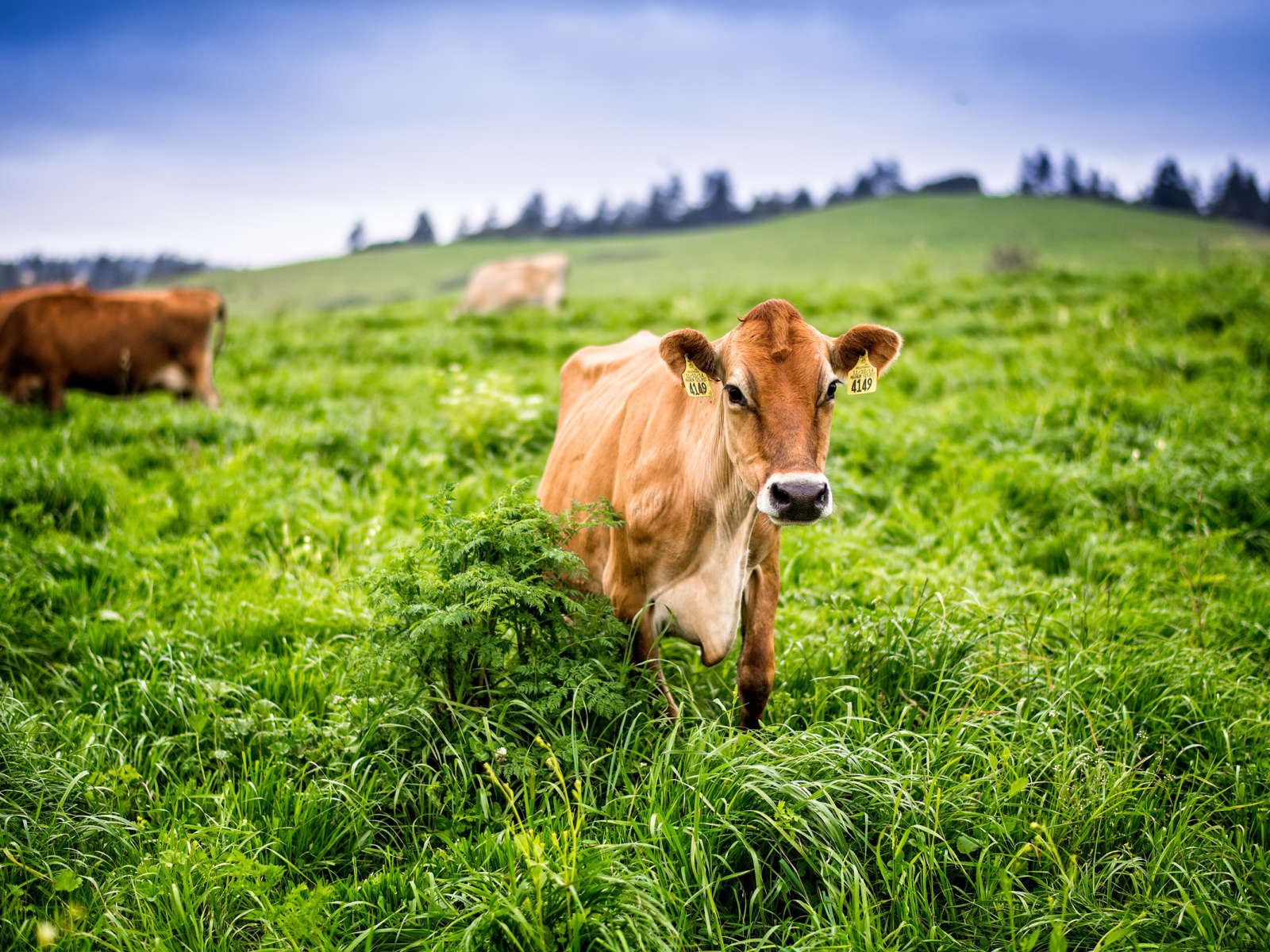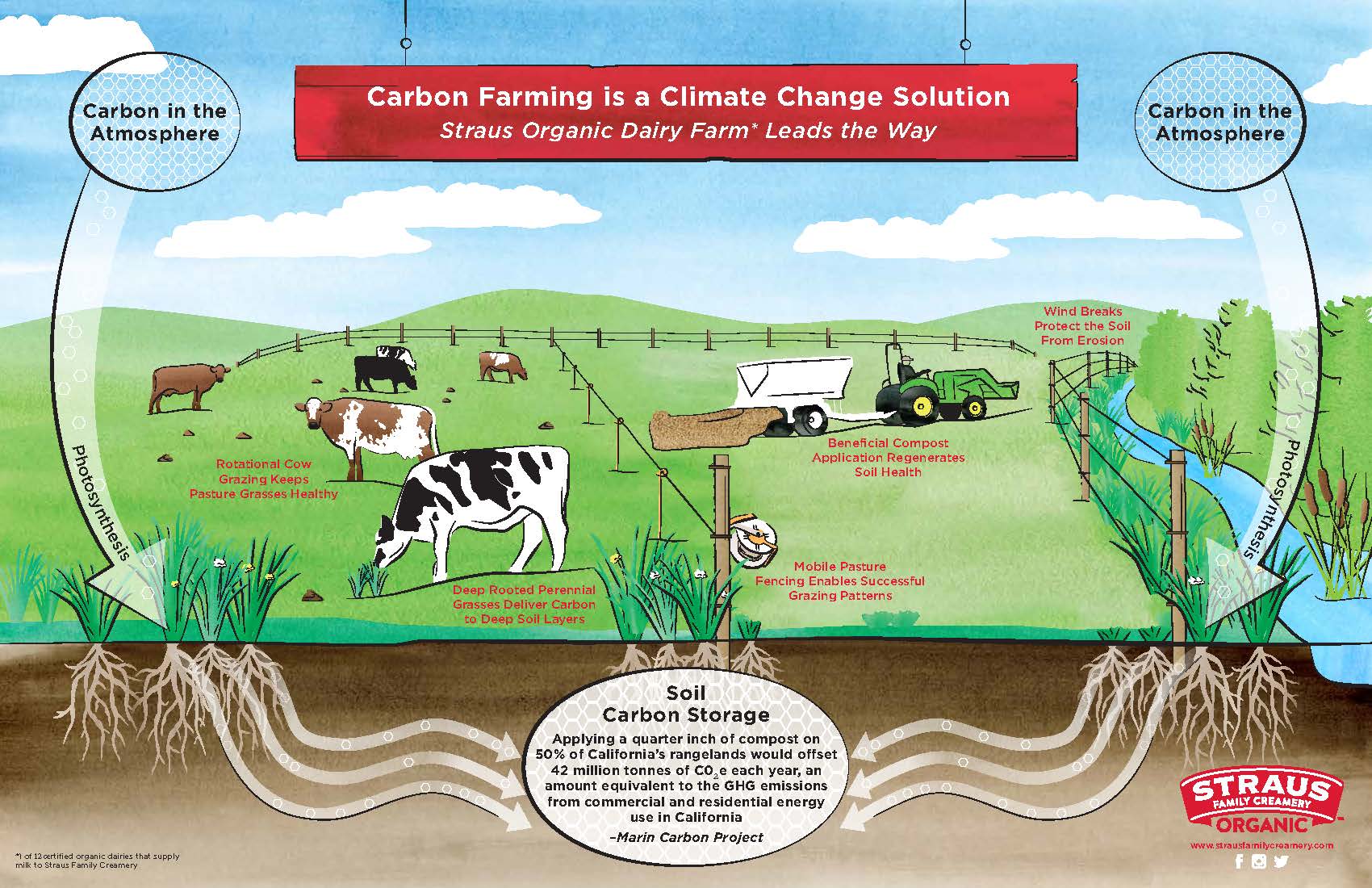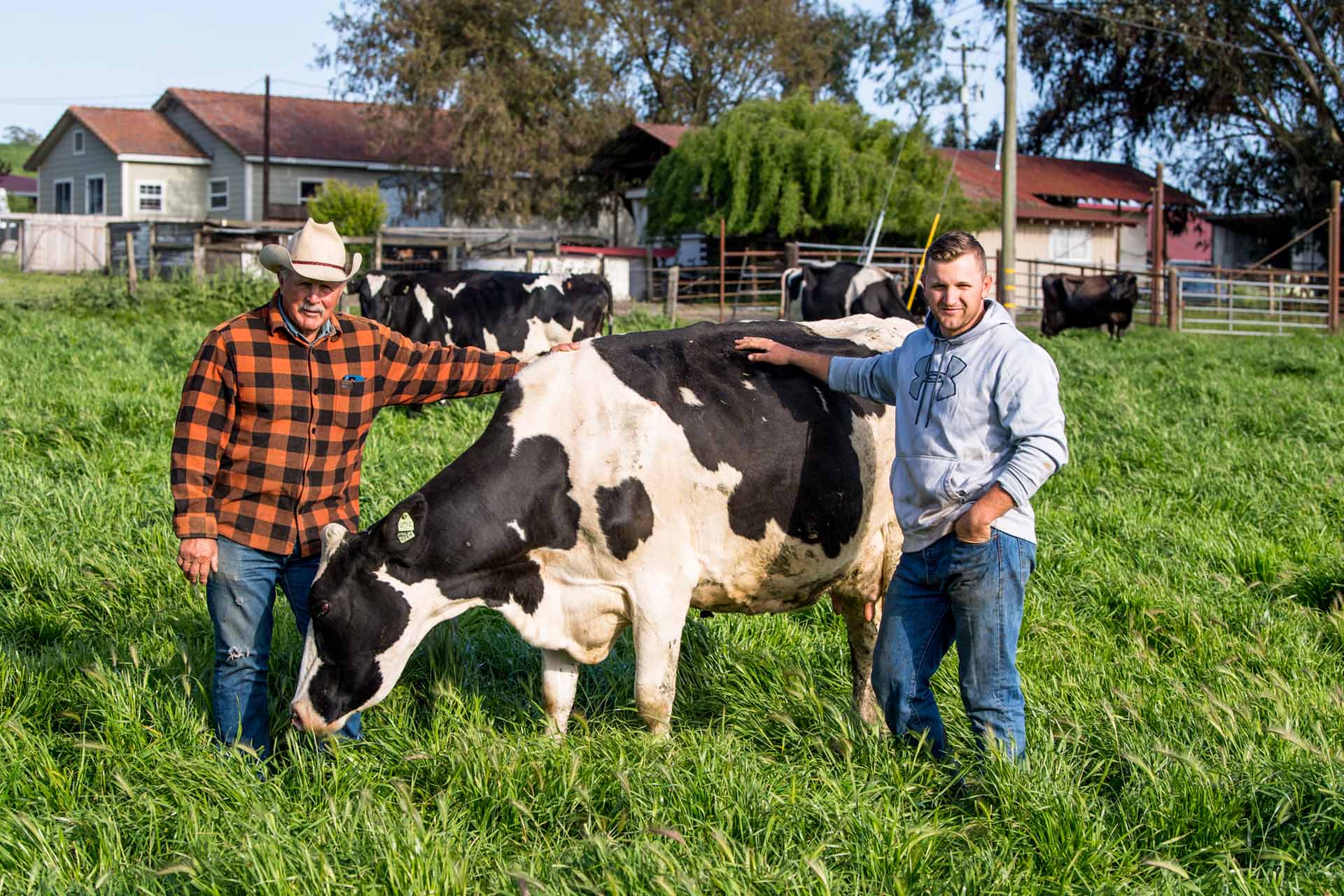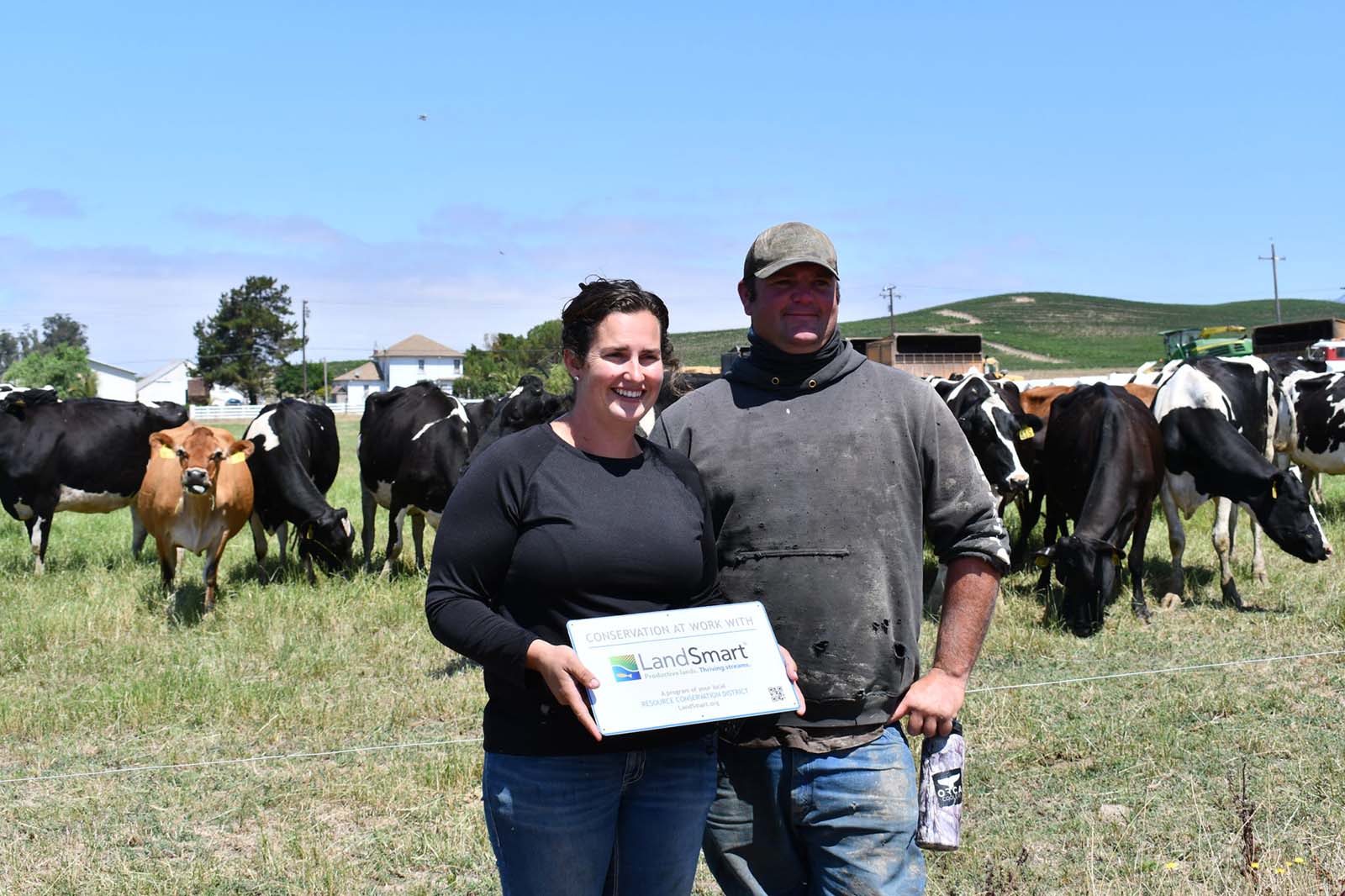Carbon Farming
The Regenerative Agricultural Practice of Carbon Farming
The climate crisis is an urgent concern for businesses and agricultural communities around the world. Carbon farming is recognized globally as a solution to fight climate change. The pasture grasslands of an organic dairy farm are an ideal environment to implement carbon farming practices. The regenerative agricultural practice of carbon farming on organic dairy farms is helping move carbon from the atmosphere and put it back into the soil. The environmental benefits include:
Promoting soil health through rotational grazing
Cows are moved to different pastures every few days which improves pasture productivity, stimulates plant growth, allows the pastures time to regrow and produce more nourishing grasses.
Building nutrient-rich soil
Applying compost on managed pastures improves soil organic matter, enabling more water retention in the soil and the farm’s ability to sequester carbon. Higher organic matter, better nutrition, and rotational grazing practices allow for healthier plants and more vegetative biodiversity.
Restoring woodlands and streams
Through photosynthesis, pasture grasses, trees and streamside plants protect riparian habitat and pull carbon from the atmosphere back into the soil creating cleaner waterways and root systems, which reduces erosion during floods.
Mitigating climate change
Implementing sustainable organic farming practices such as carbon farming helps reduce global warming.

PASTURE PRODUCTIVITY
Carbon farming practices work to improve the health of farm soils. When soils are healthier, they naturally increase the volume of pasture production; and with increased pasture production, cows have more nutritional-rich grasses and farmers can reduce outside feed costs.
Leading with a 20-YEAR Carbon Farm Plan
In 2013, the Straus Dairy Farm became the first dairy farm in California to develop a carbon farm plan, in conjunction with the Marin Carbon Project. This is a 20-year carbon farm plan that was updated in 2020 with experts from the Marin Resource Conservation District and the Marin Agricultural Land Trust.
Straus Dairy Farm: Reducing and SequestERING Carbon
The 20-year carbon farm plan outlines how the Straus Dairy Farm has the potential to reduce its carbon footprint by 1,380 metric tons of CO2e every year. There is potential to annually reduce more than 780 metric tons CO2e of methane-rich manure emissions with the methane digester and to sequester up to 594 metric tons of CO2e every year through regenerative land practices.
These regenerative agricultural practices include adding compost on pasture to increase soil health, planting wind breaks and hedge rows to reduce soil erosion, planned rotational grazing of animals to best manage pasture health, and planting perennial grasses to increase the network of underground root systems and biology.


HELPING FARMERS CREATE FEASIBLE SOLUTIONS
Straus Family Creamery educates the importance of carbon farming and inspires its implementation to the certified organic dairies supplying milk to the Creamery, and other dairy farmers throughout the state and rest of the country. The hope is that other farmers will learn and adopt these sustainable farming practices — responsible approaches that offer feasible solutions and positively benefit the environment.
Adopting these practices can bring huge benefits. For example, if farmers spread a quarter inch of compost on just 50% of California’s rangelands, 42 million metric tons of CO2e would be offset, equivalent to all the energy use for commercial and residential sectors in California. (Source: Marin Carbon Project, 2013)
MOVING TOWARD CARBON NEUTRAL DAIRY FARMING
Straus Family Creamery launched an incentive program and road map to to help its supplying dairy farms reach carbon neutrality by 2030. Tresch Family Farms, Silacci Dairy, and Moretti Family Dairy are implementing regenerative farming practices toward this goal.
Silacci Dairy developed a Carbon Farm Plan with Sonoma Resource Conservation District to be implemented in 2022, providing a roadmap for reducing the farm’s climate impact through regenerative agricultural practices. If fully implemented, the Carbon Farm Plan practices will potentially sequester 19,280 tons of carbon over the next 20 years.
The Tresch Family is also partnering with the Sonoma RCD and finalizing their Carbon Farm Plan in 2023. They actively work to advance sustainability on their farms, beginning with a composting project funded by Zero Foodprint’s Restore California program that will increase their farmland’s carbon sequestration. The compost application will cover approximately 25 acres and sequester more than 100 tons of carbon annually (equivalent to not burning over 11,000 gallons of gas each year).

COMPOST APPLICATION BENEFITS
The San Francisco Chronicle reports that if compost were applied over 5% of the state’s grazing lands, the soil could capture a year’s worth of greenhouse gas emissions from California’s farm and forestry industries, or the equivalent of removing 6 million cars from the road.